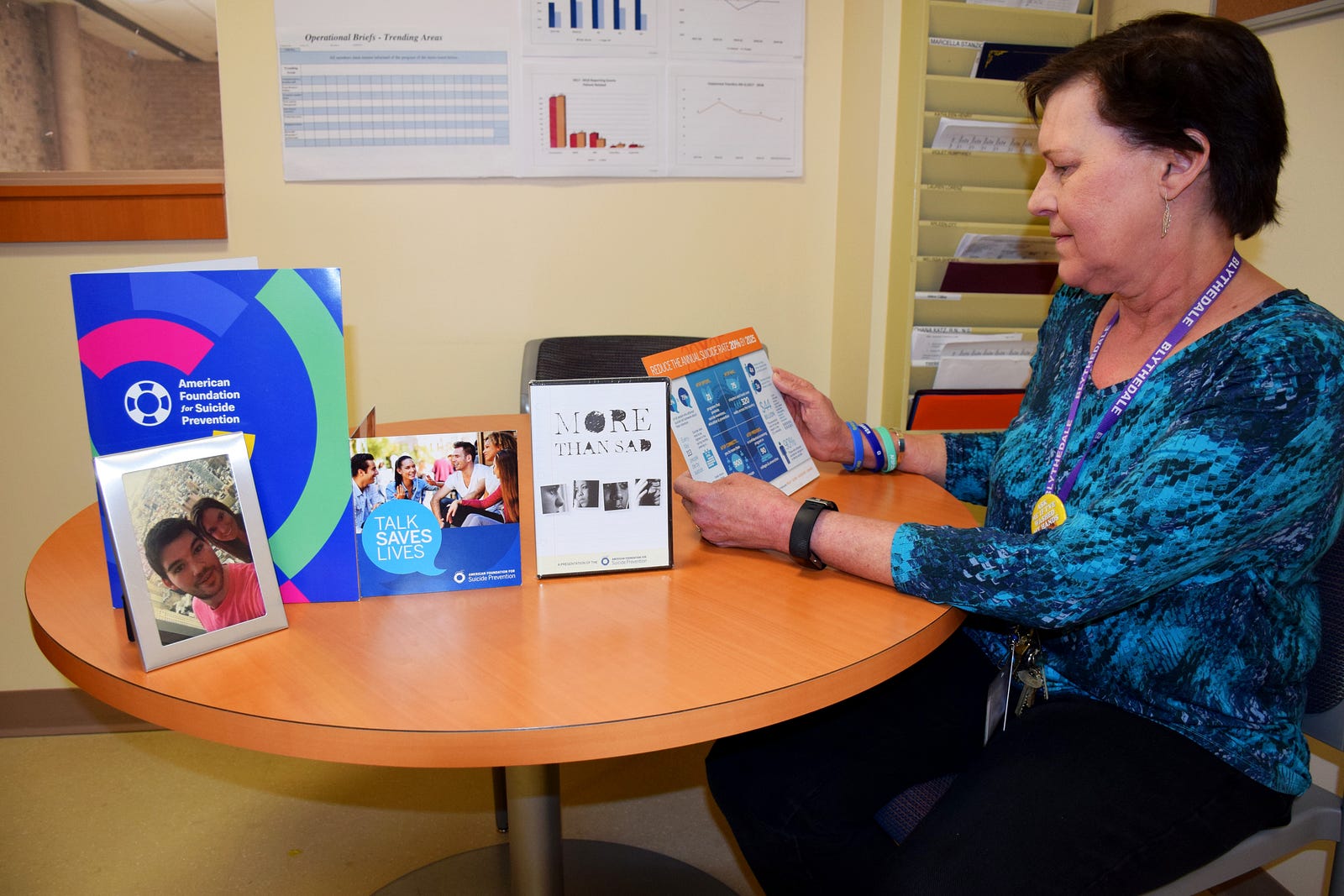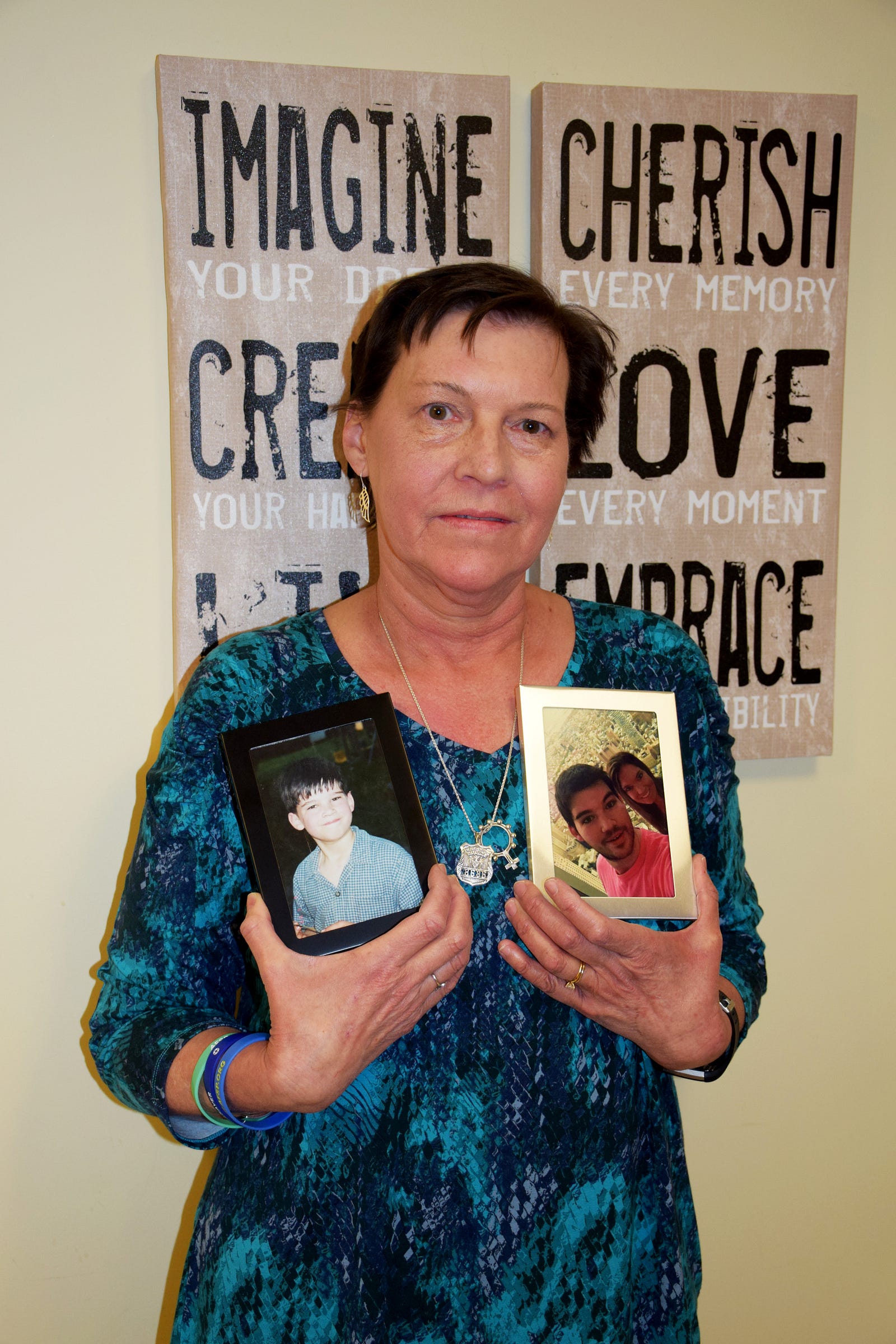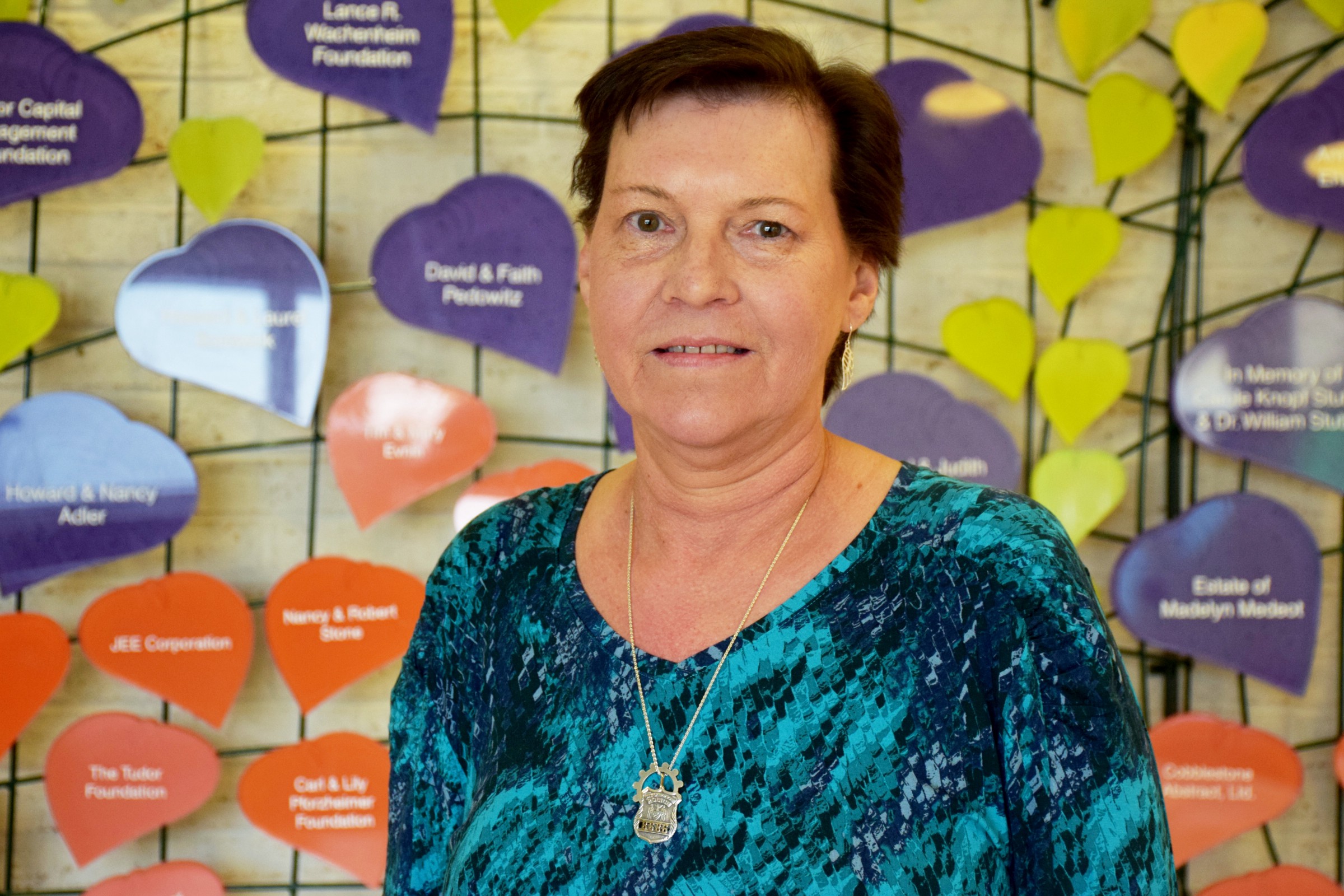As a part of my series about “Mental Health Champions” helping to normalize the focus on mental wellness, I had the pleasure to interview Suzanne Bartlett, B.S.N., R.N., C.P.N., is Director of Employee Health, Pediatric Advanced Life Support and Basic Life Support at Blythedale Children’s Hospital in Valhalla, N.Y. She has worked at the Hospital for twenty-five years, serving as a Staff Nurse and Nursing Supervisor prior to her current leadership role. Before Blythedale, Ms. Bartlett worked at Jacobi Hospital in the Pediatric ICU for six years and at Montefiore Medical Center in the Pediatric Critical Care unit for seven years. Ms. Bartlett is certified in pediatric nursing and holds Associate and Bachelor Degrees in Nursing. She is also a longtime member of the Society of Pediatric Nursing, holding various offices in the local chapter.
Thank you so much for joining us! Can you tell us the “backstory” about what brought you to this specific career path?
I have been a nurse for 40-years and have always only wanted to work in Pediatrics. I worked in two different pediatric ICUs before coming to Blythedale Children’s Hospital in 1994. I remember a former patient of mine in the PICU — an eight-year-old girl who fell ten stories. She had little chance of surviving. Miraculously she woke up and was transferred to Blythedale for intensive rehabilitation. I couldn’t believe my eyes when she walked back into the PICU with her mom. She had a limp and was blind in one eye, but had made an incredible recovery. We saved her life in the PICU, and Blythedale gave her back her life. From that point on, I wanted to work at Blythedale. Blythedale has given me so many opportunities for growth as a nurse. I never knew how much I would need their support over the past several years, and expecially since May 8th, 2018, the day my son Peter Christopher Bartlett died from Bipolar Disorder by suicide. He had struggled for years with school because he had learning disabilties and issues that were difficult to diagnose. On November 11, 2010, when Peter was 18, his Dad passed away from sudden cardiac arrest. This was a tremendous shock to my daughter Christine, Peter and me. Two years later, Peter’s favorite uncle passed away from Cardiac Arrest. This was another devastation to not only our family, but to Peter. I was diagnosed with breast cancer in January 2015 and it recurred in July 2017, along with Stage 3 ovarian cancer. Having already lost one parent, this was an incredibly challenging time for both of my children. Peter attempted suicide in June of 2017. In October of that year, Peter was diagnosed with Bipolar Disorder and part of him was relieved because it helped to explain a lot of what he had been feeling. There remained obstacles that Peter faced until he died. I believe the pain was so overwhelming for Peter on May 8th, 2018, and he unfortunately felt this was his only option on that devastating day.
According to Mental Health America’s report,over 44 million Americans have a mental health condition. Yet there’s still a stigma about mental illness. Can you share a few reasons you think this is so?
Although there are good facilities and good doctors, the mental health system needs much improvement to be able to help those dealing with mental health in the same way that physical health is addressed. My son was told by an excellent facility, that diagnosed him with Bipolar Disorder, not to share with potential psychiatrists that he had attempted suicide or they probably would not accept him as a patient. Young males are already reluctant to speak about their mental health and not being able to be honest when you are seeking help reinforces that this is something that shouldn’t be talked about.
Lack of education and preconceived notions about mental health issues and suicide are present in society and this contributes to the stigma that is unfortunately present. I am not being dramatic, but suicide and attempts are an epidemic in my eyes. In 2017 there were approximately 1.4 MILLION suicide attempts in the United States and 47,173 suicides. Suicide is the second-leading cause of death for 15–34 year-olds. These numbers are unacceptable. Lack of appropriate mental health care is a large contributing factor to these unacceptable statistics. Every one of us is in need of good mental health. If we don’t have the ability to have good mental health and be able to be honest about our needs, we cannot be truly heathy.
The fact that you can’t SEE a mental health condition makes it easier for some people to not accept that it is something to be concerned about. Some people have the attitude that someone can just snap out of it. We have to keep communicating and educating anyone who will listen, and even more so the ones who don’t want to hear it.

Can you tell our readers about how you are helping to de-stigmatize the focus on mental wellness?
When Peter passed, I did not hide that he died by suicide. While our world was completely shattered, this was so important to both my daughter, Christine, and me. He is not defined by how he died, but by his life. The first group I became involved with was American Foundation for Suicide Prevention (AFSP) and although I had done my best to learn all I could about mental illness and how I could help Peter, educating myself more has been so important so I can help others learn about mental health and suicide prevention. Education and understanding can only help to destigmatize how important our mental wellness is. Educating myself helps me to educate others, which can only have positive effects. I really wish I knew about these resources while Peter was alive to help him. Because I am open about Peter’s struggles, many people have talked to me about their own or a family members’ struggles with mental health or about losing someone to suicide. Conversations have started and that can only bring about a positive difference. It has only been a little over nine months since my world changed forever, so I am still finding my way as to how I can make a difference. One such way has been to provide support to a new suicide prevention awareness program where I work, Blythedale Children’s Hospital. Blythedale has begun using a suicide prevention screening tool to screen all patients who can communicate on admission, in order to identify signs that something that may be concerning. Blythedale has always been at the forefront in caring for children, and a step that I am taking, with Blythedale’s support, is to bring mental health and suicide prevention education to the community. I envision Blythedale as a hub for this education to take place. To start with, there are several educational programs we will offer to the community and schools to chip away at the stigma. There is a one-hour introductory program called “Talk Saves Lives” and staff at Blythedale will become educated in the delivery of this program. Two other programs that we will be offering are “More Than Sad”, which speaks to depression for students, for parents and for educators, and “Mental Health First Aid” for youth and young adults, which is an eight-hour course that teachers, healthcare workers and other members of the community can take. For me, this is the beginning of the change and I am so grateful that Blythedale is equally invested in making a difference for impactful mental health changes and suicide prevention. I know that my efforts will only grow because it is what I need to do for my son, for every person who suffers in silence, or who wants help and just can’t find it. Conversations are what brings about change and this change is imperative because Peter matters — there was only one unique him. Every life matters.
Was there a story behind why you decided to launch this initiative?
I have always been honest about the struggles Peter faced, unless it would make his life more difficult. An example of a time I didn’t share was when Peter was in school and I would hear parents make heartless judgments about second-graders and the struggles they may face. When Peter died I was not going to hide how he died because I knew how hard his journey had been and his life mattered beyond words to me. I remember Peter asking me when he was twelve or thirteen that if something ever happened to him and he died, would people remember him? I vowed after he died that Peter will be remembered, because of him the stigma of mental wellness will be decreased and acceptance will increase. Every person matters and if someone needs help, we must be the voice for them to receive the help they need and to be a support in whatever way needed.
In your experience, what should a) individuals b) society, and c) the government do to better support people suffering from mental illness?
As individuals we need to take the time to speak to one another and listen with a non- judgmental ear. If someone wasn’t feeling physically well, we wouldn’t think twice about supporting them. We need to view mental wellness in the same way. Every one of us can be an advocate for mental health change.
Government needs to listen to the needs of its constituents. Local, state and the federal government have the ability to change laws to help those struggling with mental health. By signing up through American Foundation for Suicide Prevention (AFSP), we can all be advocates for potential laws that will help. An example that the Federal Government is looking at is the creation of a three-digit number those in crisis can call, the same way 911 is used for an emergency. This is just one example of initiative that we can advocate for and bring attention to. Communities need urgent care facilities for mental health in the same way we can go to one for a physical ailment. Families need more support as to how best help their loved ones who are struggling.
It was so difficult for Peter to find a psychiatrist to take him as a patient and eventually he saw a doctor by telehealth. This caused a gap in his medication that he was prescribed for bipolar disorder. He would say to me, “Mom, you have no idea what goes on inside my head.” He also said that the medication was helping him to deal with it. Getting the medication was an issue and he was turning 26, so paying for his healthcare became an issue for him. He had left his job because he wasn’t feeling well mentally and was dealing with me going through my second battle with cancer. Alleviating the worries of how to pay for treatment is a way the government can make a huge difference. Although battling cancer three times has its stressors, I have not had the burden of worrying about financial issues. This cannot always be said when dealing with mental health, especially if mental health issues interfere with being able to work because you can’t get treatment. Without treatment you may not be able to work and a vicious circle is created.
35-days before he died, he said goodbye to me on the phone and my daughter and I were terrified. I had called 911 and Peter finally told my daughter where he was, came home with her and he cried so hard. The police spoke with him and he had to be evaluated in the psychiatric ER. He was very cooperative with the police, who treated Peter with such respect and compassion. When Peter knew that he had to go to the ER, he was so angry at my daughter and me, and it took eight police officers with handcuffs and shackles to get him in the ambulance. It broke my heart, but this was what was best for Peter at that time. My daughter followed Peter to the hospital. When he arrived at the hospital, he said that he wasn’t going to hurt himself, despite my daughter and me telling the doctor that he had previously attempted suicide and was suicidal that night. Because Peter was an adult, they determined he did not have to be admitted. My daughter and I knew that if he felt suicidal again, he would not share this with us because we had called 911. That was unfortunately the case and he died 35 days later. I don’t know how to change the law, but if family members are sharing that someone wants to harm themselves and have done so in the past, the patient should not be looked at as competent at that time. This could save lives.

What are your 6 strategies you use to promote your own wellbeing and mental wellness? Can you please give a story or example for each?
Having lost my son Peter within the past year, I don’t know that I am at a place where I feel that my own wellbeing is in a good place. There are times that I am honestly proud of myself for just breathing. Four months after Peter died, I was diagnosed with Stage 4 breast cancer and Stage 4 ovarian cancer, so I am always looking for ways to help my mental well being. Grieving is such a personal journey. What may help me, may not help somebody else.
- Spending time with my daughter, Christine, gives me my greatest sense of peace. When my girl comes over, things almost feel right with the world and I love her beyond words. Family and friends have also lifted me up in ways I can never express.
- Working at Blythedale Children’s Hospital has been such a blessing. I don’t walk down a hallway where there isn’t someone who is supporting me, even without words. I don’t think that I could work with a more compassionate group of people and I am so grateful. Work gives me a purpose, especially because of the environment, and there are days that I feel good about what I have accomplished.
- I have two dogs — my son’s lab and a rescue puppy we got the week before Peter died. Maddie and Lexie make sure I get out of bed every day, show such unconditional love, and make me smile.
- My faith in God helps me every day. I miss Peter beyond any way I can say, but I know that I will be with him someday. There is no doubt in my mind that he is at peace with God and surrounded by loved ones.
- I began going to a bereavement group for parents that has been helpful. Several weeks ago, I began seeing a therapist who specializes in trauma and serious illness. Speaking with her is another way to help my mental health. I am fortunate that I have insurance to cover this, when so many do not have this luxury when it is so needed.
- Remembering my son Peter through the difference I am trying to make really helps my mind. We are starting a mental health and suicide prevention committee at Blythedale and I would like to co-chair it. My son matters and I hope he is proud of his mom.
What are your favorite books, podcasts, or resources that inspire you to be a mental health champion?
There are several organizations that have educated me as I begin this new journey that I never wanted to be on. American Foundation for Suicide Preventon (AFSP) is one organization that I have become involved in and am becoming more involved with our local chapter. Mental Health Association (MHA) Westchester is another organization that has helped to educate me and I have participated in several events. The third Organization is the National Alliance on Mental Illness (NAMI). These are all national organizations that have local chapters available to both individuals and families. They offer education, promote advocacy to make a difference and are involved in research to help those dealing with mental illness and/or suicidal thoughts through sound evidence.
Thank you so much for these insights! This was so inspiring!


